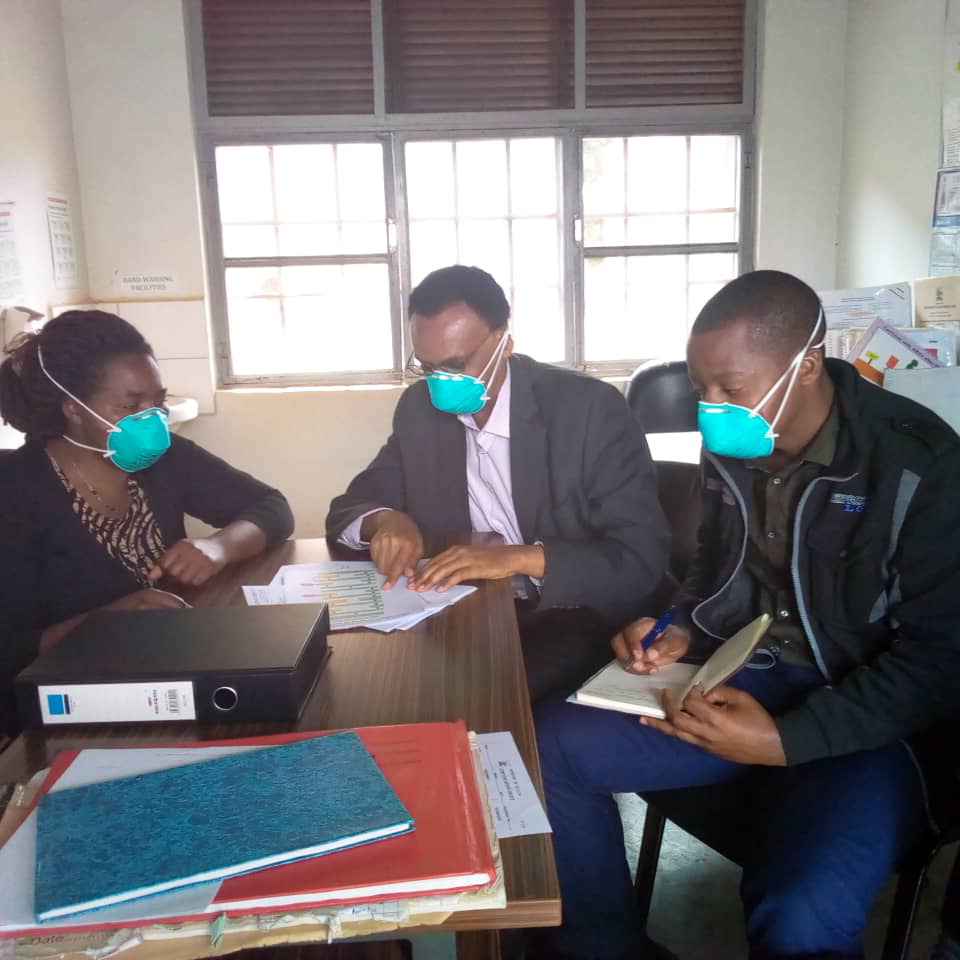|
Cycle 5 (2016 Deadline)
mHealth for TB-Tobacco: An approach to reduce tobacco use among TB patients
PI: Elizeus Rutebemberwa (ellie@musph.ac.ug), Makerere University School of Public Health, Centre for Tobacco Control in Africa
U.S. Partner: Robert Pack, East Tennessee State University
Project Dates: February 2017 - January 2021
Project Overview
Globally, more than 20% of tuberculosis (TB) cases are attributable to smoking, hence the critical need to reduce TB prevalence through smoking cessation. There is sparse information on how to incorporate tobacco control into TB programs in low-and-middle income countries, particularly using mobile information and communications health solutions (mHealth), even though the WHO Global TB program calls for an integrated approach toward TB-tobacco prevention and treatment. Previous studies into the use of mHealth technology for smoking cessation indicate significant potential in successful behavior change. This project aimed to provide policy and program recommendations to the TB program and the tobacco control programs in Uganda by developing and testing mHealth solutions to support TB patients quitting tobacco use and promote adherence to TB treatment.
Researchers measured tobacco quit rates and TB treatment protocol adherence for patients who received integrated tobacco cessation health education in their treatment programs. The project used the mCessation approach using SMS as a solution for providing information, following up with patients, and supporting them to quit tobacco use.
Final Summary of Project Activities
Dr. Rutebemberwa and his colleagues selected regional hospitals and other healthcare sites for the study based on their high numbers of TB patients and the availability of medical support for tobacco withdrawal symptoms. Each health facility recommended one health worker in their TB ward to be involved in the study. They were invited to Kampala and trained for a week on the research objectives and their responsibilities in the study. The researchers also undertook a pilot study in Mulago.
Health workers administered questionnaires on paper to identify tobacco users among TB patients and then recruited them to sign up for ongoing SMS messages as part of the program. Every quarter, two supervisors would collect questionnaires, support the health workers in their work, and provide supplies like lab test strips or stationery. There were a total of 80 participants in the control group and 80 in the intervention, spread around the regions.
At the time the PEER grant ended, the PI and his team were still analyzing their results to determine the impact of the intervention. In the meantime, however, the PI received an additional $46,000 grant from Makerere University Research Innovation Fund to continue research on reducing tobacco use. He notes that the PEER grant was helpful in getting this grant because it highlighted an important problem and provided background data documenting that the study site, Moroto District, has high tobacco use rates across all age groups. The work Dr. Rutebemberwa and his team continue to do in consultation with the Ugandan Ministry of Health goes beyond health facilities and looks at tobacco use within communities and schools.
Publications
E. Rutebemberwa, K. Nyamurungi, S. Joshi, Y. Olando, H.M. Mamudu, and R.P. Pack. 2021. Health workers’ perceptions on where and how to integrate tobacco use cessation services into tuberculosis treatment; a qualitative exploratory study in Uganda. BMC Public Health 21(1): 1464. https://doi.org/10.1186/s12889-021-11502-4
H. Mamudu, K. Namusisi, W. Bazeyo, Y. Olando, J. Surabhi, F. Makumbi, R. Pack, and E. Rutebemberwa. 2018. Change in knowledge of tobacco use and secondhand smoke exposure among health workers in Uganda. Tobacco Induced Diseases 16(Suppl 1): A636. https://doi.org/10.18332/tid/84518
Back to PEER Cycle 5 Grant Recipients
|
|
|
|




